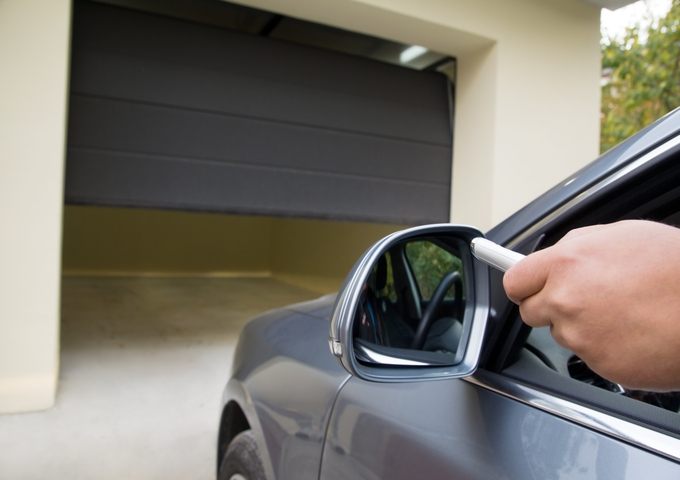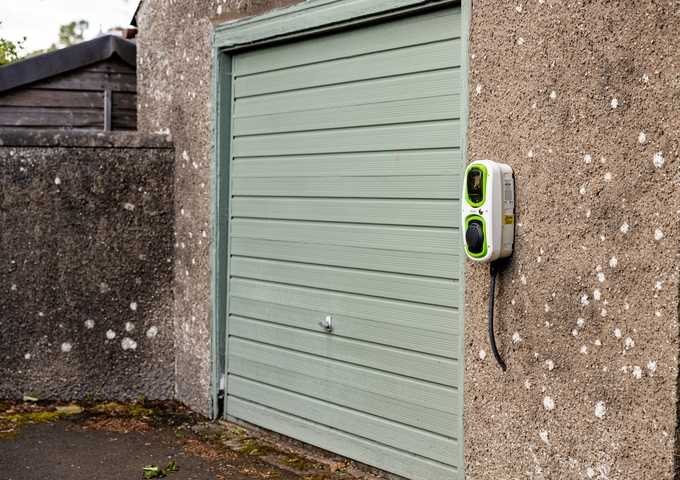When searching for the ideal garage door opener, one key decision is choosing between a 1/2 hp and a 1 1/4 hp garage door opener. Choosing the best garage door opener requires an understanding of horsepower. Homeowners often compare a 1/2 hp vs 1 1/4 hp garage door opener.
Selecting the wrong motor strength can lead to performance issues, shorter opener lifespan, and increased maintenance costs. This guide will help you make an informed decision tailored to your garage setup.
Why Garage Door Opener Horsepower Matters
Horsepower (HP) determines how much lifting power your opener has. The right HP ensures your garage door opens smoothly and lasts longer.
Motor Power Explained
Your opener’s motor power affects how efficiently it can lift a garage door. Bigger, heavier doors require more HP.
Door Size and Weight
A single aluminum door needs less power than a double wooden door. That’s where the 1/2 hp vs 1 1/4 hp garage door opener debate starts to make sense.
Drive Type Affects Performance
Drive systems like chain, belt, and screw affect how power is transmitted. Belt drives pair well with high HP motors for quiet operation.
Understanding 1/2 HP Garage Door Openers
Suitable for Standard Doors
1/2 HP models are commonly used for standard single-car garage doors made of light materials.
Cost-Effective Option
They’re affordable and widely available. Many homeowners consider this the best garage door opener for light use.
Not for Heavy Doors
If your door is insulated, wooden, or oversized, this opener may strain and wear out quickly.
Availability and Popularity
Due to their affordability, 1/2 HP openers are the most popular in suburban areas with smaller garages.
Read More: wall mount garage door opener vs ceiling mount
Who Should Use a 1 1/4 HP Garage Door Opener?

Heavy-Duty Performance
1 1/4 HP openers are designed for large, heavy garage doors or those with frequent usage.
Longer Lifespan
Due to their robust build, they handle wear and tear better, ideal for attached garages or frequent use.
Quiet and Smooth
Many 1 1/4 HP models come with advanced drive systems that reduce noise significantly.
Better for Harsh Climates
Colder climates may cause insulation to stiffen. Higher HP ensures doors open consistently, even during freezing temperatures.
Comparing 1/2 HP vs 1 1/4 HP Garage Door Opener
| Feature | 1/2 HP | 1 1/4 HP |
| Power Level | Basic | High |
| Ideal Door Type | Single, Light | Double, Insulated, Heavy |
| Lifespan | Medium | Long |
| Cost | Affordable | Expensive |
| Noise | Moderate | Low |
| Frequency of Use | Occasional | Frequent |
| Climate Suitability | Mild | All climates |
Which Is Right for You?
Ask yourself: What HP garage door opener do I need? Consider your door type, insulation, and how often you use it.
Impact on Door Hardware
Underpowered openers can stress hinges and springs, causing wear. Right-sizing your HP prevents costly repairs.
Read More: Belt vs Chain Garage Door Opener
When to Choose 1/3 HP or 3/4 HP Openers
1/3 HP Garage Door Opener
Used for very light single doors. It’s less common today due to performance limitations.
3/4 HP Garage Door Opener
Offers a middle ground. Ideal for standard two-car garages that don’t need the power of a 1 1/4 HP model.
Best Situations for 3/4 HP
Choose 3/4 HP if your door is heavy but usage is infrequent. It balances power with moderate cost.
Pros and Cons of Higher HP Openers
Advantages of 1 1/4 HP
- Handles heavy doors easily
- Durable and reliable
- Quiet operation
- Better for smart features
- Supports high-tech systems like camera integration
Disadvantages
- Higher cost
- May be overkill for light doors
- Requires more space and energy
Energy Efficiency Considerations
Higher HP openers use more electricity. If your garage door is small and used sparingly, 1/2 HP is more energy-efficient.
Power Consumption Over Time
Consider how often you open your door. Higher HP models consume more during operation but may complete tasks faster.
Installation and Maintenance
Professional vs DIY
It is recommended that homeowners hire a professional for their installation to avoid errors. It also ensures warranty coverage.
Regular Maintenance Tips
- Lubricate moving parts every 6 months
- Inspect tracks and rollers monthly
- Test the auto-reverse feature regularly
Signs You Need Maintenance
Grinding noises, jerky movements, and delayed responses often point to motor or track issues.
Smart Features and Safety
Modern openers come with Wi-Fi, auto-locking, and backup batteries. Choose based on your priorities.
Enhanced Security
Higher HP models often support advanced encryption and multi-user access.
Safety Features
Auto-reverse sensors and rolling code technology are standard in most modern units.
Integration With Smart Homes
Many 1 1/4 HP models sync with Alexa, Google Assistant, or smartphone apps.
Final Thoughts: 1/2 HP vs 1 1/4 HP Garage Door Opener
Choosing between the 1/2 hp vs 1 1/4 hp garage door opener depends on your door’s size, weight, and how often you use it. It is best to use 1/2 HP for light, single-car doors. Heavy, double doors need 1 1/4 HP for reliable, long-term use.
Long-Term Value
While 1 1/4 HP costs more upfront, it may last longer and reduce future repair costs.
Futureproofing
Opting for a higher HP opener can support heavier, insulated doors if you renovate or upgrade.
Summary Comparison
Still deciding on the 1/2 hp vs 1 1/4 hp garage door opener? Match the HP to your door’s size and your family’s lifestyle for the best results.
FAQs
Q1. What is the most common garage door opener size?
The 1/2 HP model is the most commonly used in homes with standard-sized, light garage doors.
Q2. Can a 1/2 HP opener lift a two-car garage door?
Not efficiently. A two-car door, especially if insulated, should use at least a 3/4 HP opener.
Q3. Is 1 1/4 HP too much for my garage?
It might be more than needed for a small door, but it offers quiet and durable operation regardless.
Q4. How long do garage door openers last?
On average, 10 to 15 years with proper maintenance, though higher HP models may last longer.
Q5. Should I get a belt or chain drive opener?
Belt drives are quieter and smoother; chain drives are more affordable but noisier.

Leave a Reply